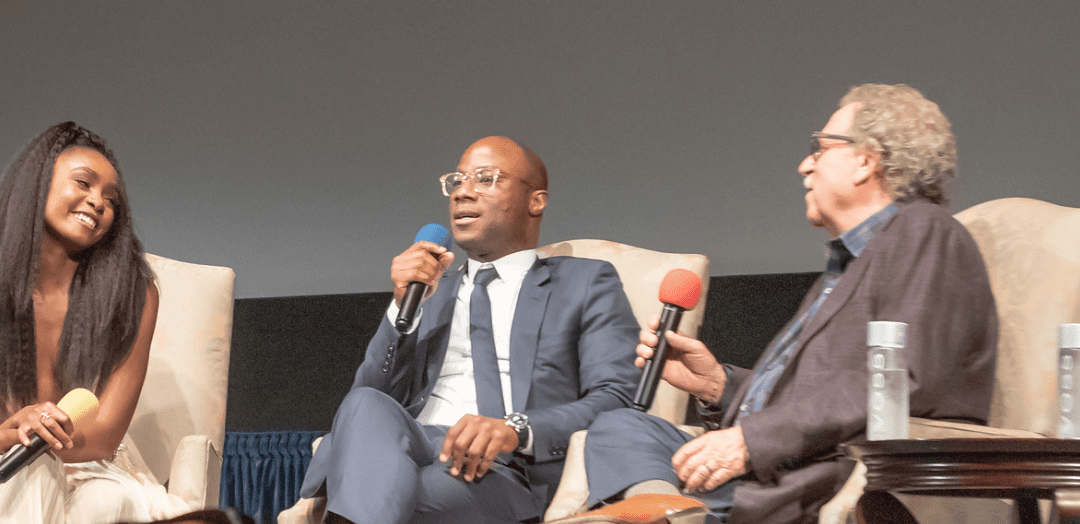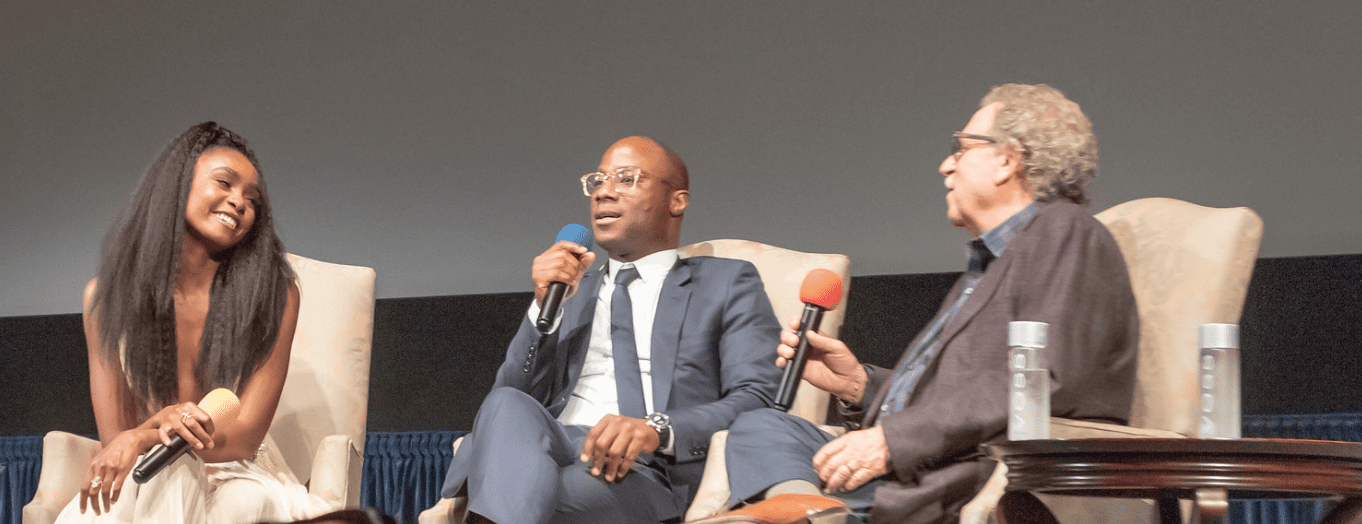Baldwin’s still-urgently relevant catalog of work includes If Beale Street Could Talk, his fifth novel and 13th book, which was published in 1974. Jenkins, whose film Moonlight won the Academy Award for best picture, best director and best adapted screenplay, appeared at the 41st Mill Valley Film Festival‘s closing night on Oct. 14 to screen his adaptation of Baldwin’s tome, making him the first person to garner the approval of the Baldwin estate to adapt one of his novels for a big-screen, English-language film.
In a Q&A after the two-hour film, Jenkins made it clear how much he agreed with Flournoy’s statement, and how much that fact drove his desire to make the film and the process of making it. “This film is more about Baldwin than it about me,” Jenkins told a packed house at the Smith Rafael Film Center in San Rafael. “The cultural weight of words were much heavier than they are now, and his words remain extremely powerful today. I wanted the reaction to this film to be not ‘what a great film,’ but ‘holy sh**, how can I read more James Baldwin.”
Baldwin’s words, particularly those spoken by the two main characters, 19-year-old Tish Rivers and 22-year-old Alonzo “Fonny” Hunt, are the force behind nearly every aspect of the elegiac film, which tells the story of the couple’s deep, abiding love and a pregnant Tish’s efforts in 1970s Harlem, joined by her family, to free the innocent Hunt.
But much as Jenkins’ Moonlight, in adapting Tarell Alvin McCraney play In Moonlight Black Boys Look Blue told a larger story about the ravages of poverty, the war on drugs and complexities of being gay in America, his If Beale Street Could Talk digs into the American black experience, as relevant in many ways today as it was when the book was published 44 years ago.
As newcomer Kiki Layne, who plays Rivers in the film, says in a film voice-over quoting Baldwin’s words verbatim, “The kids had been told that they weren’t worth sh** and everything they saw around them proved it.”
“I choose to make films that are rooted in blackness,” Jenkins said.
“For a film to rise to greatness it has to have something to say,” said MVFF Founder Mark Fishkin in his Q&A with Jenkins and Layne. “This film certainly has a lot to say, and it is as poignant and beautiful as any film that we’ve ever shown.”
The evening – and festival – concluded with a Closing Night Party at the Elk’s Lodge in San Rafael.
The 411: Barry Jenkins‘ If Beale Street Could Talk opens with a limited release on Nov. 30. MORE INFO. Here’s the trailer:


